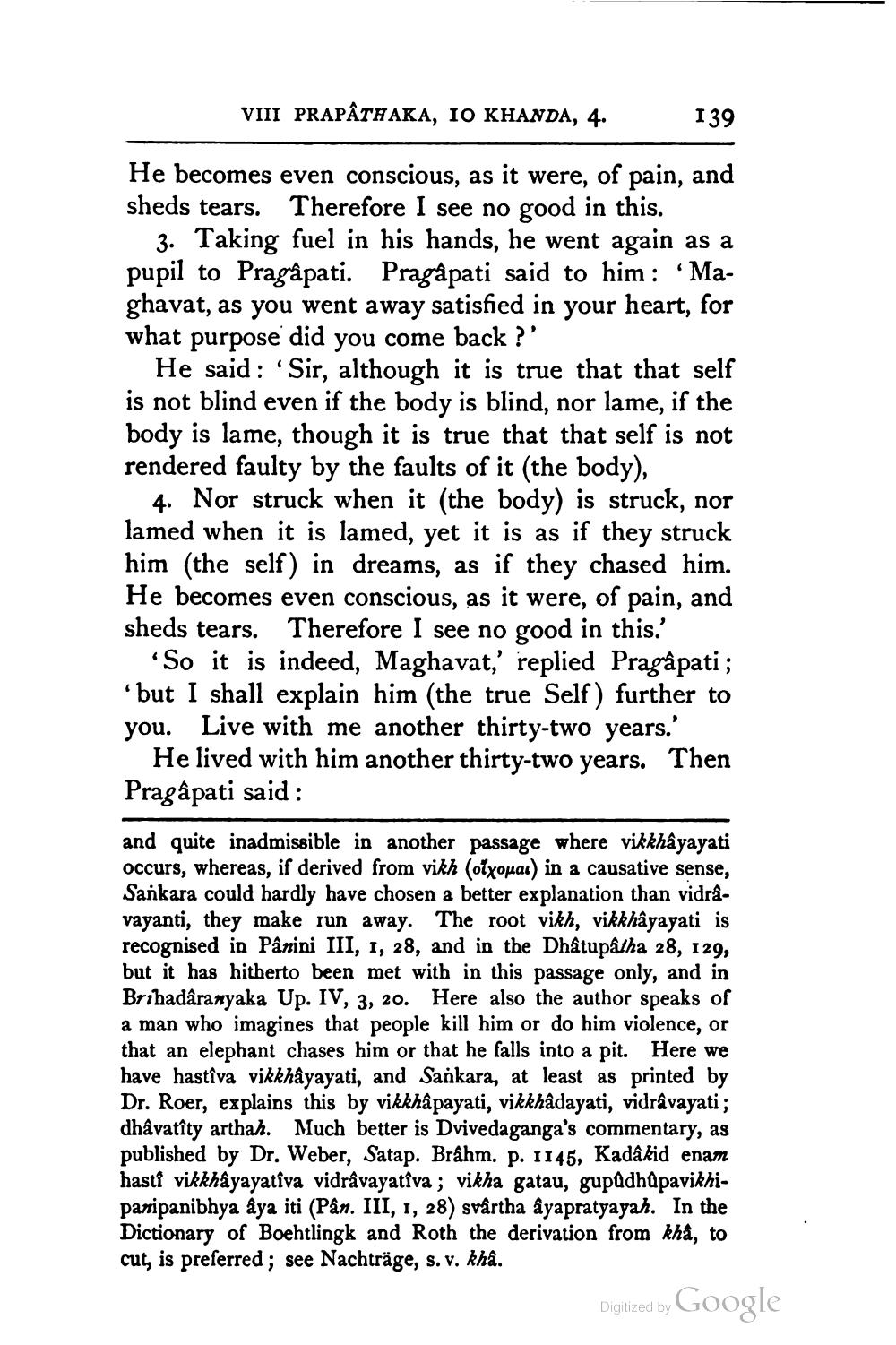________________
VIII PRAPATHAKA, IO KHANDA, 4.
139
He becomes even conscious, as it were, of pain, and sheds tears. Therefore I see no good in this.
3. Taking fuel in his hands, he went again as a pupil to Pragâpati. Pragàpati said to him : Maghavat, as you went away satisfied in your heart, for what purpose did you come back ?'
He said: 'Sir, although it is true that that self is not blind even if the body is blind, nor lame, if the body is lame, though it is true that that self is not rendered faulty by the faults of it (the body),
4. Nor struck when it (the body) is struck, nor lamed when it is lamed, yet it is as if they struck him (the self) in dreams, as if they chased him. He becomes even conscious, as it were, of pain, and sheds tears. Therefore I see no good in this.'
So it is indeed, Maghavat,' replied Pragâ pati ; 'but I shall explain him (the true Self) further to you. Live with me another thirty-two years.'
He lived with him another thirty-two years. Then Pragâpati said: and quite inadmissible in another passage where vikkhâyayati occurs, whereas, if derived from vikh (otyopat) in a causative sense, Sankara could hardly have chosen a better explanation than vidravayanti, they make run away. The root vikh, vikkhâyayati is recognised in Panini III, 1, 28, and in the Dhâtupâtha 28, 129, but it has hitherto been met with in this passage only, and in Brihadaranyaka Up. IV, 3, 20. Here also the author speaks of a man who imagines that people kill him or do him violence, or that an elephant chases him or that he falls into a pit. Here we have hastîva vikkhâyayati, and Sankara, at least as printed by Dr. Roer, explains this by vikkhâpayati, vikkhâdayati, vidrâvayati; dhâvatîty arthah. Much better is Dvivedaganga's commentary, as published by Dr. Weber, Satap. Brahm. p. 1145, Kadâkid enam hasti vikkhayayatîva vidrâvayatîva; vikha gatau, gupůdhūpavikhipanipanibhya âya iti (Pân. III, 1, 28) svårtha âyapratyayah. In the Dictionary of Boehtlingk and Roth the derivation from kha, to cut, is preferred; see Nachträge, s. v. khả.
Digitized by Google




